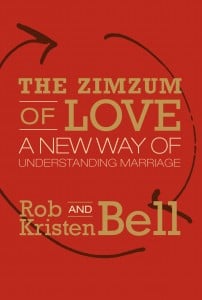 Right now, in the US, many of us wrestle with the Evangelical movement we grew up in. There are a lot of reasons for that. Our questions are theological, as we struggle with the atonement, the Kingdom of God, or Hell. We ask sociological questions about the role of women, LGBTQs, social media and politics. And philosophical and generational issues arise regularly. We’re in this exciting moment of turmoil right now, and we can realize we make real differences.
Right now, in the US, many of us wrestle with the Evangelical movement we grew up in. There are a lot of reasons for that. Our questions are theological, as we struggle with the atonement, the Kingdom of God, or Hell. We ask sociological questions about the role of women, LGBTQs, social media and politics. And philosophical and generational issues arise regularly. We’re in this exciting moment of turmoil right now, and we can realize we make real differences.
For me, the questions (or lack of questions) around gender have been interesting. I find myself wanting to explain what it’s like to grow up as a conservative Evangelical woman and how difficult the transition into leadership is from that place. I work a lot in the conference world, and my issues often arise there. I hear the whispers that men don’t. So, even though I’m at risk of sounding like a bad Cosmo article, I decided to write 7 Things Guys Need to Know about PEWs (Post-Evangelical Women). Basically, it’s the stuff we’re saying or dm’ing when you’re not there.
1) We were told to keep silent in church. Sometimes it was overt and other times it was subtle—a youth or Campus Crusade for Christ director buddies up with the cool football guys, takes them to lunch, and focuses on their leadership potential while the young women were left stranded. To go from “you must be silent” to finding your voice can be a long, arduous process.
2) We’re not welcome at every table. Nobody’s a blatant sexist (well, almost nobody…), so we have to look for cues. When a PEW sees the leadership of an organization or the splashy landing page for a conference, and we notice that the gender ratio is 14 to 1, it causes panic. We think, I thought this movement was different! I thought I was welcome here! It may be that we are welcome, and the leadership thought that having one female voice was good enough. But, for PEWs who grew up listening to “women should keep silent,” major gender inequity is a clear signal that the table is off-limits to us.
3) We don’t want to hear whining about forced quotas. We’ve heard the tiresome response: “We don’t do quotas. This movement isn’t about counting and making sure that there’s a particular number of non-white males.” I’m sorry, but there’s no way around it. There will be no transformation in women’s leadership unless women are in leadership.
4) PEWs hear a defensive response as “you’re not welcome.” Sometimes on Twitter or blogs, a person might point out an appalling gender ratio. The PEWs who bring it up get the smack-down. I’ve been the recipient of coordinated pummeling twice by organizations who care about gender issues. I don’t understand why they did it, other than defensiveness. Ironically both boot parties were orchestrated behind the scenes by other women. If you care, please stop.
5) There are enough women. I’ve been hosting a podcast for a couple of years, and I regularly receive emails from men who ask to be on the show. I rarely get them from women. Women may be less willing or less able to self-promote. We’re harder to find. But we’re here. We’re writing, speaking, and preaching.
6) Please refrain from using “organic leadership” or “meritocracy” as an excuse. When the subject of PEW leadership comes up, we hear, “Our leadership grows up organically. If women want to be involved, they need to produce.” If organic growth or meritocracy is a reason for not having women in leadership, you have to realize that for post-evangelical women, we’ve have had weed-killer sprayed on us for 20 years. You’ve got to spread the manure to all the corners of the garden for a couple of decades before you can expect women to naturally grow into leadership.
7) Money Matters. Forgive me, but there’s no delicate way of saying this. I’ve spoken at conferences where I have as many credentials as the guy standing next to me. Sometimes more. I’ve gotten paid fifteen times less than he does. You know what makes things more awkward? The conference leaders congratulate themselves for “flattening leadership,” “overturning hierarchies,” or “unbinding the church.” The guy next to me is known for his hard-core social justice work. I’m here to tell you… no one’s overturning hierarchies at a conference where a woman gets seven cents to a man’s dollar.
—————————————————
Carol Howard Merritt is a pastor of Western Presbyterian Church, an intergenerational congregation in Washington, D.C. Western’s deep commitment to serving the poor in the city has helped to initiate programs like Miriam’s Kitchen, a social service program for the homeless which provides a hot, nutritious breakfast and dinner for over 200 men and women; Project Create, which teaches art to children in transitional housing; and HIPS which stands for Helping Individual Prostitutes Survive.
Carol’s the author of Reframing Hope: Vital Ministry in a New Generation (Alban, 2010) and Tribal Church: Ministering to the Missing Generation, (Alban, 2007). Carol is also the co-host of God Complex Radio with Landon Whitsitt. And she blogs for the Huffington Post.











